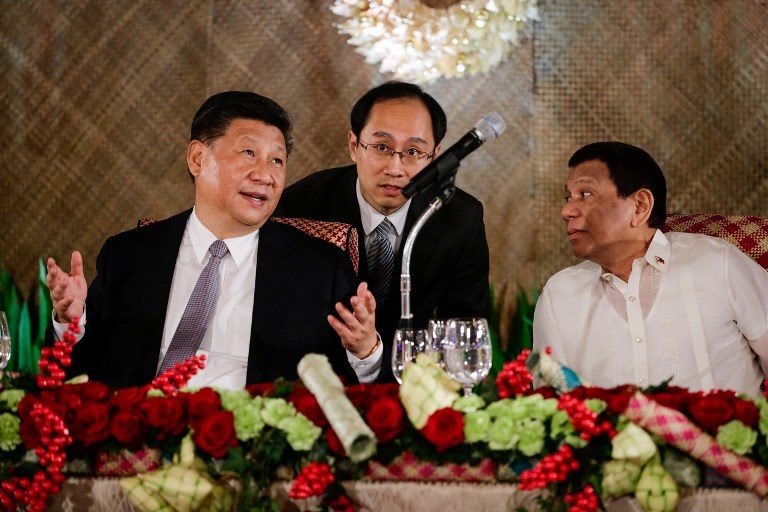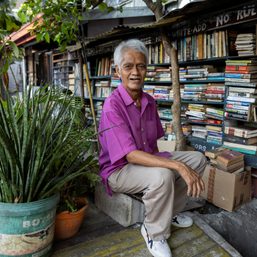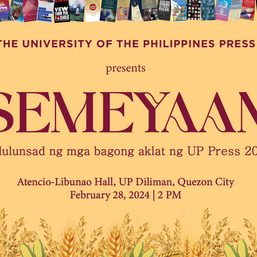SUMMARY
This is AI generated summarization, which may have errors. For context, always refer to the full article.

MANILA, Philippines – The historic state visit of Chinese President Xi Jinping to Manila was “more optics than substance,” critics of President Rodrigo Duterte’s pro-Beijing policy said, as the two countries failed to arrive at concrete arrangement on several areas where they planned to cooperate.
Still, analysts raised concerns about deals signed during the visit.
“The visit was much more about optics than substance. It was an effort by Presidents Xi and Duterte to send the message that their new relationship is delivering. In that it probably succeeded,” Washington-based analyst Gregory Poling of the Asia Maritime Transparency Initiative told Rappler.
“All it did was to demonstrate the attempts to showcase good relations,” said Filipino South China Sea expert Jay Batongbacal of the University of the Philippines Institute for Maritime Affairs and the Law of the Sea.
An image-conscious China might be satisfied with good optics, especially with a country that won an international arbitration case against its sweeping claims in the South China Sea.
There were 29 agreements signed during Xi’s visit, which were mostly statements of intent except for two concrete infrastructure projects.
Australian Euan Graham, executive director at La Trobe Asia, said the visit showed that Duterte’s policy failed and it’s time for the Philippines to raise its victory against China in the international court.
“Now that the Duterte government’s strategy of turning the 2016 Hague ruling into Chinese investment has been proved false, the Philippines has nothing to lose by bringing it back into play,” he told Rappler.
Danger in oil and gas deal
But it’s only a “reprieve,” said Batongbacal.
While “tangible outcomes are less than what was expected,” transparency and vigilance are paramount as President Duterte implements these bilateral agreements, he said.
Critics and observers are focused on the planned oil and gas development deal between Manila and Beijing in the West Philippine Sea.
Following rising tension with China, the Philippines was forced in recent years to put on hold exploration activities even in waters inside its own Exclusive Economic Zone.
Batongbacal said the Philippines should not agree to a set-up where the country will be locked in an exclusive agreement with China and affect its own ability to explore its own waters.
Hawaii-based professor Alexander Vuving of the Daniel K. Inouye Asia-Pacific Center for Security Studies warned that this is the danger of the Memorandum of Understanding (MOU) on gas and oil exploration.
“The MOU on joint exploration ties the Philippines to sharing ownership of oil and gas reserves in the South China Sea. It commits the Philippines to the concept of joint exploration, which erodes Philippine sovereignty in the South China Sea,” Vuving told Rappler.
“The trick of the concept lies in the fact that the way you share things implies the ownership of the things you share,” Vuving said.
Some pushback
Poling welcomed some pushback in the Philippine government on the oil and gas deal.
“What we now know about the changes DFA got into the MOU suggests Secretary Locsin altered some of the more worrisome Chinese language and inserted some important safeguards,” he said. “In that he probably got as much as was possible from the Chinese,” Poling added.
This averted what was expected to be a more dangerous set-up, he said.
“The MOU still is just an agreement to seek an agreement. Manila and Beijing aren’t any closer to cooperation on oil and gas development today than they were to years ago when this effort began,” said Poling.
It seemed they were working out deals but were not finished in time, said Batongbacal.
He pushed for transparency from government and vigilance on the part of the public on how the deal will be implemented.
“It could be good because it’s a breather that allows us to review whatever it is they are doing. It might also be seen as a bad thing because we might neglect to monitor it,” said Batongbacal. – Rappler.com
Add a comment
How does this make you feel?
![[Rappler’s Best] Patricia Evangelista](https://www.rappler.com/tachyon/2024/04/unnamed-9-1.jpg?resize=257%2C257&crop=486px%2C0px%2C1333px%2C1333px)








There are no comments yet. Add your comment to start the conversation.